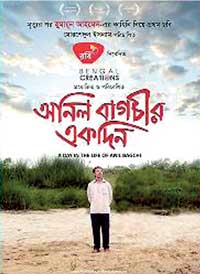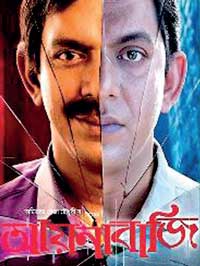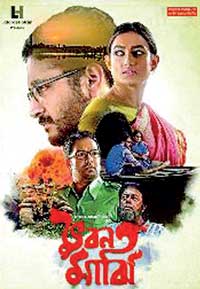Colombo, March 27: From March 23 to 25 art film lovers of Colombo were treated to a fine collection of Bangladeshi films by the Bangladesh High Commission here and the Sri Lankan National Film Corporation, writes P.K.Balachandran in Daily Mirror.
What was remarkable about the ensemble of films was the variation in the theme. The entire gamut of issues facing Bangladesh was covered like never before. It spanned the historical and the contemporary; the traumatic past associated with the 1971 liberation struggle and the challenges of present-day Bangladesh; the distinctiveness of issues confronting urban and rural Bangladesh; the ideological clash between anachronistic Islamic fundamentalists and present-day youth exposed to modern means of communication. Last but not the least, the issue of gender was presented forcefully.
The films shown also clearly brought out how, despite the rising tide of Islamic fundamentalism, Bangladesh is a culturally well integrated country and is unabashedly so. Here’s a country where the Hindus and the Muslims work together, united by a passion for the soil of Bengal, the Bengali language and Bengali culture which embraces both Muslims and Hindus. The casting was multi-religious, and borders were transcended in the process. The credit titles featured even South Indian names like Krishnamoorthy and Pillai! The star cast included Irrfan Khan and Rahul Roy of India. Bangladeshi cinema is a true integrator.

The resultant blend is both unique and captivating. It gives multi-cultural and multi-religious countries currently under assault by fanatic majoritarian forces, reasons to hope that they will survive.
The opening film was Mostafa Sarwar Farooki’s “Doob” (No Bed of Roses), starring the famous Indian actor Irrfan Khan. It was about a famous film director Javed Hassan who, due to his over commitment to his work, gets distanced from his wife and children.He complicates matters by falling for an attractive starlet. But Javed is unable to communicate his dilemmas to his school teacher wife of long standing.
The theme is not unusual but Director Farooki brought out the inner tension without resorting to melodrama. He told the tale of human vanity and egotism and the paradoxes that crop up in our lives realistically but with sensitivity.
Aynabaji
Amitabh Reza’s directorial debut “Aynabaji” has an unusual theme. Protagonist Sharafat Karim Ayna is a “human chameleon” serving as a “double” for socially highly placed but convicted criminals. The dark underbelly of Dhaka’s criminal and judiciary system is portrayed starkly. The double’s mystery is chased by an inquisitive and stubborn crime reporter Saber.
But like every cocky-confident ‘professional’, Ayna gets into deep trouble and eventually finds himself not having any control over the proceedings. He becomes a prisoner who ,to his dismay, is finally sentenced to death. But ingenuity and daring helps him escape from the prison to cycle away as a “prison guard” going home after duty.

The thriller has ample twists and surprises, with Chanchal Chowdhury turning in an unforgettable performance as Ayna. Partha Barua is every inch a committed reporter struggling hard to dig the truth but only to be cold shouldered by the editor.
Television
In this film on Islamic fundamentalism in rural Bangladesh, a patriarchal and dictatorial village chairman, Amin, bans every kind of image in his village, including cinema, television sets, cameras and mobile phones. He even declares that “imagination” is sinful as it leads one into prohibited territory.
Amin’ orders are met with obedience first, and then by subtle defiance, and eventually by open revolt. Muslim villagers were secretly watching TV in the Hindu school teacher’s house and a mirror was used to reflect TV images to help beat the religious taboo. But those caught doing this were punished.

Eventually, defiance became confrontational with the agitators intimidating the aged chairman publicly . Surprisingly ,the seeds of the revolt were planted by his imbecile son, having been influenced by his progressive and daring lady love.
But the hold of tradition being what it is, the son apologizes to the father. But the father continues to shun images as “haram” and struggled hard to accept being photographed for a passport to go to Mecca. But a chance glance at a television set showing a direct telecast from Mecca made him change his mind about TV. What was haram, became halal.
Under Construction
The age-old problem of patriarchy and class divisions in urban Bangladesh are examined in Rubaiyat Hossain’s “Under Construction”. On the surface, protagonist Roya seems to have a perfectly built life, with a long-standing acting career, a businessman husband and a sleek apartment with a full time maid, Moyna.
But Roya’s life is dictated to by the husband who has no empathy for her or her achievements and struggles in her artistic career. At work, it is the Director who dictates to her. She finally throws off the yoke of the husband as well as that of the Director and takes charge of her life, partly inspired by her plucky house maid.
Director Rubaiyat Hossain is no stranger to controversy. Her debut film “Meherjaan” about a love affair between a Bangladeshi woman and a Pakistani soldier during the 1971 war of independence was pulled out of cinemas after a week due to a public outcry. “Under Construction” is in line with Rubaiyat’s passion for challenging stereotypes and dragging people out of their cocoons.

Bhuban Majhi
“Bhuban Majhi” by Fakhrul Arefeen Khan is set against the backdrop of the 1971 Bangladesh war of liberation from Pakistan. Being a documentary filmmaker gives Arefeen an edge in portraying historic events. But he tells the story not in a drab away, but with the sensitivity of a creative artiste.
However, the long time frame of the film, spanning the years between 1971 and 2013 with all their complexity, posed a challenge to the Director. Whether he met the challenge is for the audience to judge. But critics said that the film, is a must watch.
Anil Bagchir Ekdin
“Anil Bagchir Ekdin” is also set against the backdrop of the liberation struggle of 1971. It revolves round a Hindu family which is partly located in Dhaka and partly in its native village. When the Pakistani army began its crackdown on Bangladeshis, especially the Hindus among them, Anil is told that his father had been killed by the Pakistani army. He rushes to his village against advice. On the bus he is told by a Muslim co-passenger not to reveal his Hindu name but to go as “Mohsin”. But being a timid man, Anil gives away his real name when confronted by a Pakistan military search party.
He is taken to be tortured and killed. But while being taken away he told his Muslim fellow traveler to tell his sister, Atoshi, who is in love with a Muslim, to marry the lover, disregarding Hindu social taboos.
(The featured image at the top is a poster of the film Television)




























































